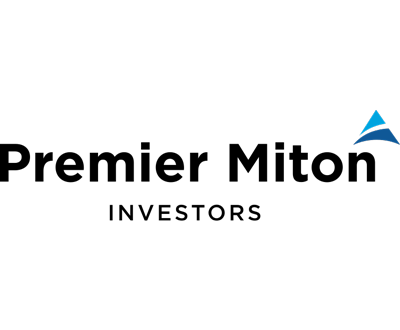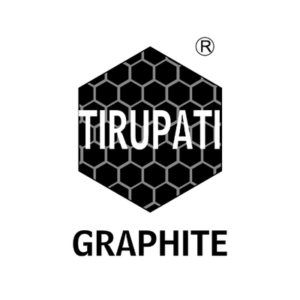Premier Miton Investors plc (LON:PMI) Head of Equities Gervais Williams caught up with DirectorsTalk for an exclusive interview to discuss the positive economic momentum, how the increase in tax on dividends will effect investors, sustainable investing, portfolio clients that are investing heavily in green technologies and for real world change and companies investors should be looking at in terms of growth opportunities.
Premier Miton Investors is a genuinely active investment manager offering a range of mutual funds and investment trust as well as a portfolio management services covering equity, fixed income, multi-asset, and absolute return investment strategies. Now, joining me today to discuss the sustainable sector and some of the companies within it is Fund Manager Gervais Williams.
Q1: As the global economy reopens post-COVID, are we seeing signs of a positive economic momentum?
A1: Certainly what we have seen is that now that a lot of nations have moved away from lockdown, that we have seen a strong recovery in economic activity, but we’re seeing it in sort of different ways.
Certain areas haven’t recovered very much, and we think international air travel is nothing like as much as it was whereas other areas have recovered so much that actually there’s bottlenecks and we’re seeing shortages of supply there, things like electric cars. So, it’s been mixed recovery, and, if anything, I think the latest data is suggesting that the buoyancy of that recovery is beginning to peak out. We’ve seen less upbeat figures from the US and actually some quite cautious economic data coming out of China.
So I think it’s quite a mixed bag in terms of recovery.
Q2: How will the recent increase in tax on dividend income effect investors and investment trusts?
A2: The interesting thing about the costs of COVID is that the governments are now going to have to increase taxes. There’ll be an increase in tax on dividends for investors, there’s quite a lot of increases in taxes on companies as well, the corporate tax rate in the UK is rising and there’ll be a new tax related to improving the cash for the NHS and people who are retired.
Most particularly, I think this is a feature of the trend going forward, I think most companies, most individuals are going to find that actually cost increases start to come through, and some of those cost increases won’t just be the cost of food rising, it’ll also be tax increases rising as well.
So I think it’s a combination of both those areas, which is going to be a significant feature.
I think it’ll be quite difficult going forward actually to generate not just an income, but an income which grows. I think there will be some funds which achieve income growth, but I think generally it’ll be quite a difficult period, and with tax increases as well, I think it’s going to be really quite a challenging period for getting good and growing income.
Q3: Now, sustainable investing is increasingly important for investors and provides high growth opportunities. How important is sustainability to you in assessing companies for your portfolios?
A3: Well, in a way we’ve always been interested in sustainability. There’s lots of things which are environmental, social, and governance issues which people talk about now that encapsulate that. If you go back 10 or 20 years, we worried about whether companies were safe, whether they were looking after the employees well, whether they had bad accidents, all of those kind of things so I think it’s always been a feature.
Going forward, of course, what people often talk about when they’re talking about sustainability, they’re talking about how environmentally we’re dealing with the climate change agenda and I think the financial sector as a whole has a very significant opportunity here. Not just because we can identify companies which are already part of the success of investing for companies which are producing things which are very much low carbon environment but most particularly for many businesses, they’re going to move from being carbon emitting to less carbon emitting or indeed no carbon emissions at all.
I think the opportunity there is for these companies to invest hard to move ahead of the competition so that they can take full advantage of the changing behaviour of their customers.
So, I think the financial sector is going to be absolutely central to not just dealing with companies which are already quite well positioned for the greenhouse gas emissions, but most particularly those which need to reduce it, the steel companies, the cement companies, or the construction companies. So, from that point of view, I think we are actually looking at a period where there’ll be heavy investments funded by, in many case, investors to get these emissions down.
It’s a tremendously important issue and I think it’s a really central issue to the decisions we make on behalf of clients.
Q4: Now, there are a number of clients in your portfolios that are investing heavily in green technologies and for real world change. Can we just discuss a couple with you?
First one is CyanConnode Holdings plc (LON:CYAN), the leaders in using narrowband RF technologies or networks for smart metering in India and Africa. The Government of India announced a rollout of 250 million smart meters by 2025, CyanConnode seems to be in the perfect position to capitalise on that do you think?
A4: Yes. What’s interesting is that its technology because it’s a mesh, it basically means that it doesn’t have to be linked to the mobile network all the way through. If one end is linked to mobile network, it can pass messages up and down its network. Most particularly as a business which is measuring the usage of energy, specifically there is quite a lot of wastage at the moment where perhaps there’s unmetered usage or indeed illegal usage of some of these materials.
So, effectively what we’re seeing is that CyanConnode are coming in and they’re helping companies to regulate and to measure how much is being used, and that reduces wastage and it reduces illegal use. Most particularly it also, obviously, picks up the exact usage and helps the revenues of the utilities which are supplying so that they can invest in improving their positions too.
It’s very much at the centre of making sure that we don’t waste resource and the resource we use is measured and paid for correctly. There’s huge opportunity for a company like this to roll out its networks, not just in India, but around Africa, as you mentioned, and they’ve had a number of recent orders, which are very encouraging.
Q5: How do you see Tirupati Graphite plc (LON:TGR)? They’ve just acquired another portfolio of graphite assets in Mozambique with graphite and graphene being so key in so many green applications.
A5: The interesting thing about graphite is it’s actually one of the key ingredients for lithium batteries, and we all need more batteries going forward, lithium batteries in particular. It’s very well positioned to supply that and, particularly has large flake size and such-like technically, it’s got the right kind of characteristics. So, there’ll be a huge demand for graphite and Tirupati Graphite is going to be supplying some of that.
On top of that, they have their own research and development centre as well, and what’s been interesting is they’ve also announced recently that they’re going to use graphene, which is a form of graphite mixed with aluminium to produce wires which are quite similar to copper wires. Most particularly they’re about half the weight, if you need more electricity in cars and such-like, if you’ve got very heavy wires in the form of copper wires, clearly that uses a lot of energy. If you’ve got a wire which is half the weight, and this is still at an early stage, it’s still being developed, that would be very good for energy consumption going forward.
It just shows how individual businesses find all sorts of opportunities to help in terms of dealing with the climate change agenda.
Q6: Another one of your companies is sustainable producer Dekel Agri-Vision plc (LON:DKL) . They seem to be doing really well with record production levels, high palm oil prices, and soon to launch a high-margin cashew business. Now, it seems to be trading at a low price of 5p currently, what are your thoughts on that?
A6: I think the issue about that is when you’re talking about some of these oils, palm oils and such-like, is that there’s real worries that we’re reducing jungle or wild forest to put up more production of these areas. In this case, Dekel Agri-Vision, which is not operating in Malaysia, it’s actually operating in Africa where they’re not removing forest at all, they’re taking areas which are largely not very productive and putting them into production to produce palm oil, and they’re producing in a very sustainable way. A lot of companies now are looking to only buy sustainable palm oil rather than palm oil from other areas.
All of this is good news because, again, it’s about addressing the mix between the needs for the global economy and the need for wild forest and all the diversity that comes with it so it’s very overlooked, I agree, and they’ve moved into cashew nuts, they’re taking cashew from local area as well.
So, it’s a company which is generating quite a lot of cash, and that’s the kind of characteristics we look for, we aren’t looking for companies which is just going to do something good, they need to generate cash so they can invest and ultimately grow their businesses and become more meaningful on a global stage.
Q7: Now, Quadrise Fuels International plc (LON:QFI) is another one looking to transform the shipping sector with cheaper, more sustainable fuels. What are your thoughts on them?
A7: The interesting thing about Quadrise Fuels International is that it’s a business which has been working to help shipping companies, particularly the engines which drive ships, to reduce their carbon footprints. It doesn’t eliminate them, it just reduces them but most particularly, in the short-term we just need to reduce it. In fact, if anything, as you know, there’s a real shortage of shipping capacity around the world, partly because a lot of the ships are moving more slowly because they’re trying to reduce their carbon footprint.
Quadrise Fuels International has a number of fuels which they’ve just announced recently that their trials have suggested that the carbon reduction is of the order of 20% or more and that’s a good step in the right direction. They’ve been talking some of the largest shipping companies in the world and we’re hopeful, in due course, that they’ll get some orders and be part of the solution of reducing the carbon footprint of shipping, which is about 2% of global greenhouse gas emissions.
Q8: Kenmare Resources plc (LON:KMR), how do you view them as they’re very well capitalised as a commodity stock?
A8: So, Kenmare Resources is a company which has been investing for about 15 years in bringing in new ilmenite mine into production on the coast of Africa, ilmenite is titanium dioxide, it’s the whitening agent used mainly in paint.
Many of these existing ilmenite mines are coming to an end and so from that point of view, we need more production and they’ve brought in a relatively low-cost mine, it basically is sand, it’s quite close to the coast, it refines it and ships it from there and it now supplies something like 7% of the entire world paint market.
Most particularly, now it’s generating cash, it’s in a position to further reduce its carbon footprint, it already uses most of its power from hydroelectric schemes so it’s already got a low carbon footprint, but they’re going to reduce it further now they’re generating cash.
So, it’s not as though we have to eliminate use of things like paint in the world going forward, but we just need to find ways of producing it at lower and lower carbon emission rates, and I think Kenmare Resources is one of those which is actually very much in the forefront of that.
Q9: Finally, are there any companies that you’d point investors to look at in terms of growth opportunities?
A9: I think there’s plenty of opportunities of companies which are well positioned to continue to expand, the question mark comes about regarding the global economy and with the cost of increases of taxes, with the inflationary bottleneck and with the constraints on the ability to recruit staff. We are in a position where it’s quite difficult to find companies which are going to grow sustainably at a time when there’s so many challenges.
One I would highlight which is a company we’ve had a holding in for many years, a company called Randall and Quilter Investment Holdings Ltd (LON:RQIH) and this is a company which is involved in Lloyds. Specifically what it does is it helps companies which are new to the insurance market get access to the market, if you want to sell in America for example, you have to sell to the regulations of each individual US state, and they’re all different, and it takes ages to get the approvals. Now, they’ve got an agreement with all the different states, they can put this insurance through their network if they’re happy with the service levels and the cost of this. and they’ve been expanding very rapidly in this area.
They’ve also got a similar network in Europe because it’s partly EU and part non-EU so it’s one of the leading companies in the world in this area and it’s got great momentum in terms of customer recruitment.
It takes a little while for the cash to come through, but coming through in the next three years, we expect the cash generation on that part of the business to be very substantial and that will ultimately not just drive growth in terms of top line, but also cash and the ability of the company to start growing its dividend. Randall & Quilter has reset its dividend at a lower level, but going forward, we think the dividend could grow very considerably and that’s the kind of company which hopefully will grow irrespective of what happens in terms of fluctuations of global economy.
Premier Miton Investors plc is a genuinely active investment manager offering a range of mutual funds and investment trusts, as well as a portfolio management service, covering equity, fixed income, multi asset and absolute return investment strategies.





